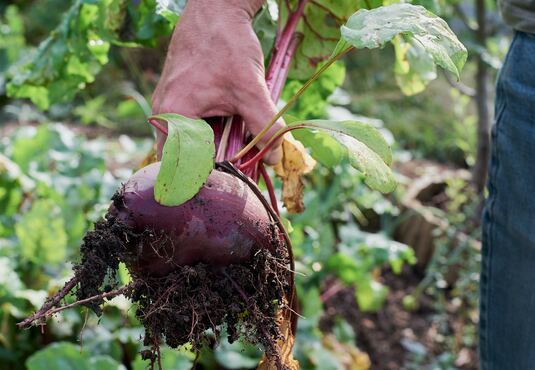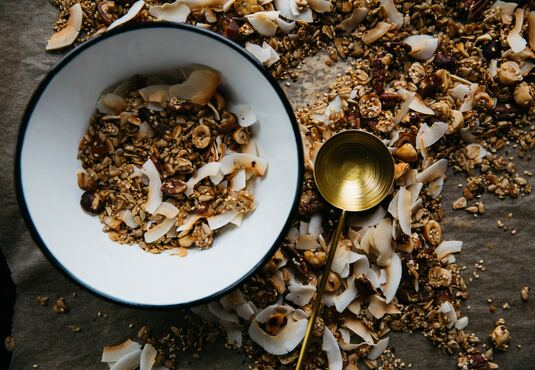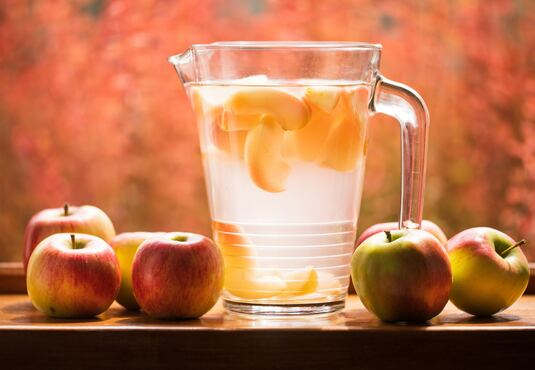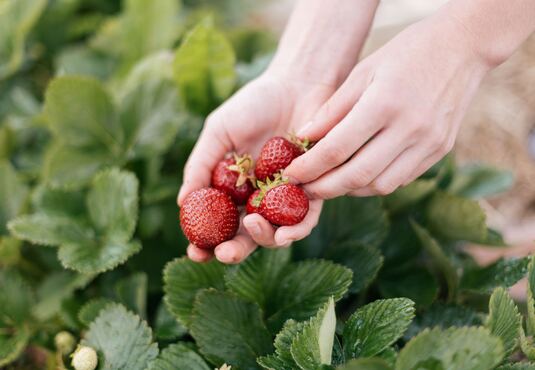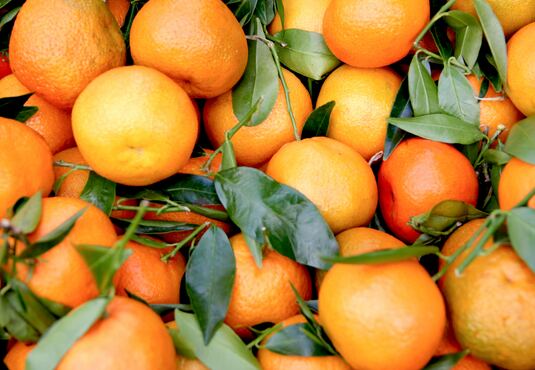
With "Iron-Power" into Autumn
It's not always just the increasing darkness and the cold weather in autumn that make us feel tired, listless and lacking in energy. A deficiency of the important trace element iron could also be the reason for a lack of performance and concentration.
Iron is important
Iron is an essential, trace element. Our body needs it for the formation of hemoglobin, the red blood pigment, and myoglobin, the red pigment in muscle. Both are responsible for the transport and storage of oxygen. Iron is also involved in many metabolic processes as well as in the energy supply of every body cell and plays an important role in the body's defense against infections. If the iron storage and haemoglobin levels in the blood decrease, iron deficiency, also known as anaemia, can develop. The body's supply of oxygen suffers - with the familiar, though very unspecific, consequences such as exhaustion, headaches and general fatigue. If the classic iron deficiency symptoms such as pale skin, brittle fingernails and hair, torn corners of the mouth, reduced physical performance and increased susceptibility to illness are also present, the patient should have his or her blood values measured.
How much iron do we need?
The main cause of iron deficiency is malnutrition or, in our latitudes, incorrect nutrition. This is because iron must be taken in with food to make up for the daily losses via defecation, urine and sweat (amounting to 1 mg per day). Since only about 10 to 15 percent of the iron in food is actually available to the body, and women additionally lose iron through menstruation, the recommended intake for men and for women over 50 is 10 mg and for younger women 15 mg per day. Due to an increased need, intakes of 30 and 20 mg per day are recommended for pregnant and breastfeeding women.
The source is important: not all iron is the same
Almost every food contains iron, although usually in small quantities. It is also important to consider: Our body can utilize iron from animal foods (heme iron) much better than iron from fruits and vegetables, legumes and whole grains (non-heme iron), because plant iron is usually firmly bound and in a trivalent form (Fe3+). It must first be converted to a soluble form and transformed into divalent iron (Fe2+). Iron from meat, poultry and fish is already present as divalent iron and is thus absorbed about two to three times better.
Nevertheless, plant-based sources of iron also make a significant contribution to covering the demand - especially if some tips for consumption are considered.
The combination is what matters
Anyone who cleverly combines plant-based foods can specifically improve their iron intake. For example, foods and juices rich in vitamin C, organic acids such as citric or lactic acid, fermented products (e.g. soy products, sauerkraut, sourdough bread, etc.) and the sulfur-containing amino acids methionine and cysteine (breakdown products of animal protein) support the conversion and absorption of plant iron in the intestine.
On the other hand, it is important to watch out for inhibiting factors. For example, iron is often bound to other substances such as oxalic acid (e.g. in spinach, rhubarb or cocoa), lignins and phytic acid, which are found in cereals, rice, nuts and legumes. This can be addressed by certain preparation techniques, such as soaking or sprouting grains and legumes, which can reduce the levels of phytates which prevent absorption. Consuming black tea, coffee or red wine at the same time also has a negative effect due to the polyphenols they contain. Furthermore, calcium salts (milk, cheese) and some medications also inhibit absorption, and so does an excessive intake of other minerals such as zinc, especially from supplements.
Especially vegans, vegetarians and all those who must pay special attention to their iron intake are therefore advised as a simple everyday tip: Drink vitamin C-rich juices with meals and season with lots of herbs. Not only do they provide vitamin C and thus promote iron absorption in the body, but they are usually good sources of iron themselves. Fruit juices containing iron can also be a good supplement.
Conversely, however, it is also important to avoid an oversupply of iron. Therefore, iron-containing dietary supplements should only be taken in the case of a diagnosed iron deficiency or increased iron requirement after consultation with the doctor.





